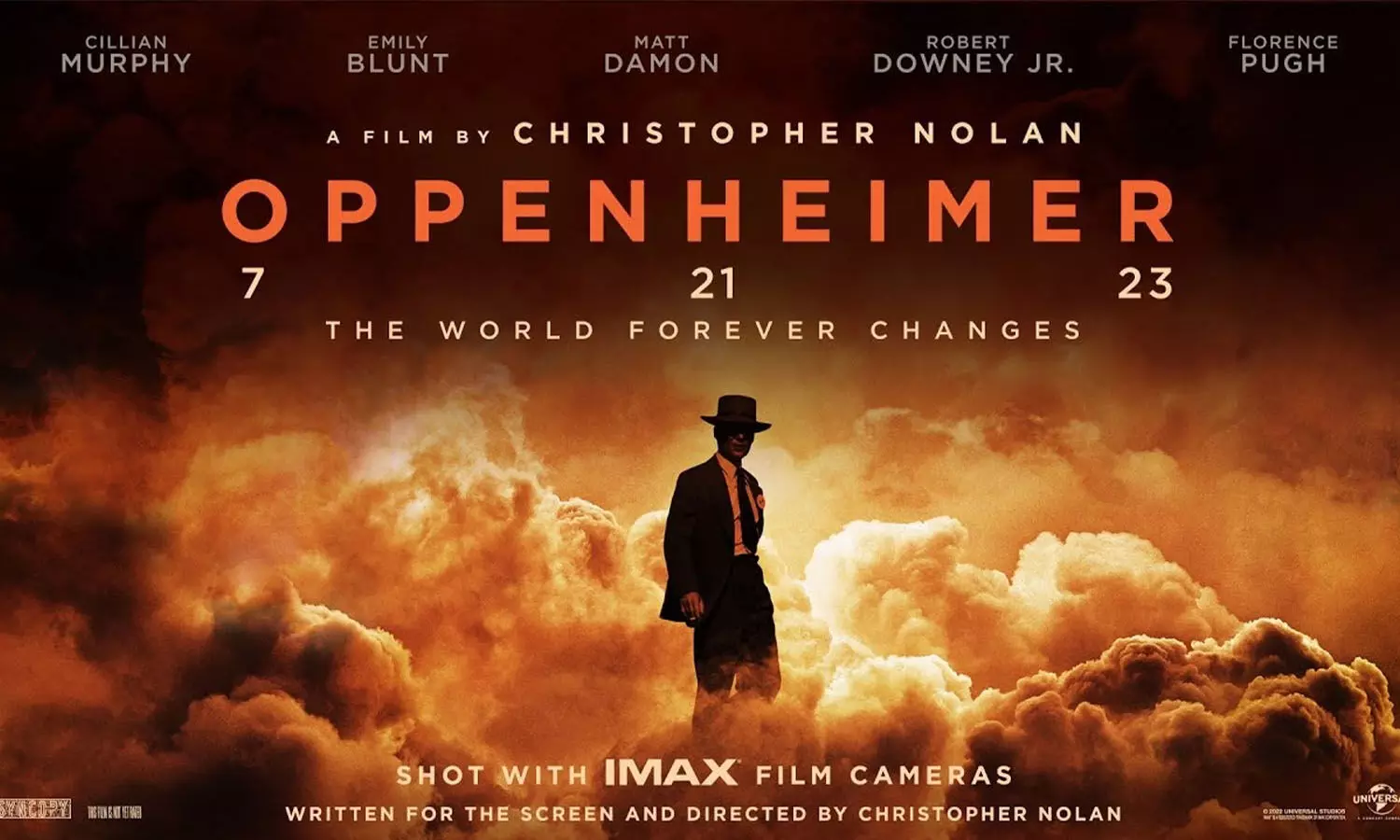
Why the Oppenheimer Movie Review?
Christopher Nolan’s Oppenheimer, a film about the enigmatic physicist J. Robert Oppenheimer and his role in the Manhattan Project, has been a topic of much anticipation and discussion. Nolan’s reputation for crafting intricate, thought-provoking narratives sets high expectations. This review delves into how Oppenheimer navigates the complex moral landscape surrounding one of the most controversial scientific endeavours in history.
What is the Movie Plot?
Oppenheimer traces the career trajectory of Dr Julius Robert Oppenheimer, portrayed by Cillian Murphy, focusing on his pivotal role in developing the atomic bomb during World War II. The narrative is enriched by the presence of other notable physicists, such as Richard Feynman and Edward Teller, played by Benny Safdie, who add depth to the story. The film, however, chooses to present these historical figures more as supporting characters to Oppenheimer’s lead, highlighting the multifaceted dynamics within the Manhattan Project.
Why Should I Watch “Oppenheimer”?
The standouts in the movie are Robert Downey Jr. (for his portrayal of a power-hungry politician Lewis Strauss ), Benny Safdie (playing Edward Teller), and to a large extent, Cillian Murphy, Emily Blunt, and soundtrack. A couple of espresso performances by Casey Affleck, Gary Oldman and Matt Damon. Kai Bird’s ‘American Prometheus’ story follows a linear trajectory of rise and fall of influence. Nolan’s ambitious storytelling, coupled with a haunting soundtrack (sometimes shadowing dialogues), contributes to a riveting cinematic experience.
Why Would I Avoid “Oppenheimer”?
Despite its strengths, Oppenheimer falters in a few areas. Nolan’s choice of a nonlinear narrative structure feels ill-suited for this biopic, at times causing confusion. The film’s soundtrack often overshadows the dialogue, muddying key moments, except in the climactic scene. The visuals, while striking, occasionally veer away from the film’s central theme of nuclear physics. Additionally, the understanding and explanation of Quantum Mechanics is questionable, and the casting for certain historical figures, like Neils Bohr, could have been more fitting. The film successfully avoids controversy while making subtle controversial references to the Bhagavad Gita by integrating T.S. Eliot’s work, it could have been portrayed more considerately.
My Thoughts
Oppenheimer movie emerges as a film that demands attention for its directorial flair and strong performances, yet it is not without its flaws. Nolan’s portrayal of Oppenheimer and the moral complexities of the Manhattan Project evoke a range of emotions, from awe to ethical discomfort. And there is the classis propaganda that “lives taken for sake of humanity” and attempt to whitewash the deaths of roughly 200,000 people. The film prompts critical reflection on the human cost of scientific progress, a theme that resonates profoundly in the current age. While Oppenheimer is undeniably a majestic piece of cinema, it stops short of being a masterpiece. Its treatment of historical details and character portrayals needed more depth and accuracy. In essence, Oppenheimer is a good theatre watch for those seeking a thought-provoking thriller, but it may leave history enthusiasts and cinema purists wanting more.
